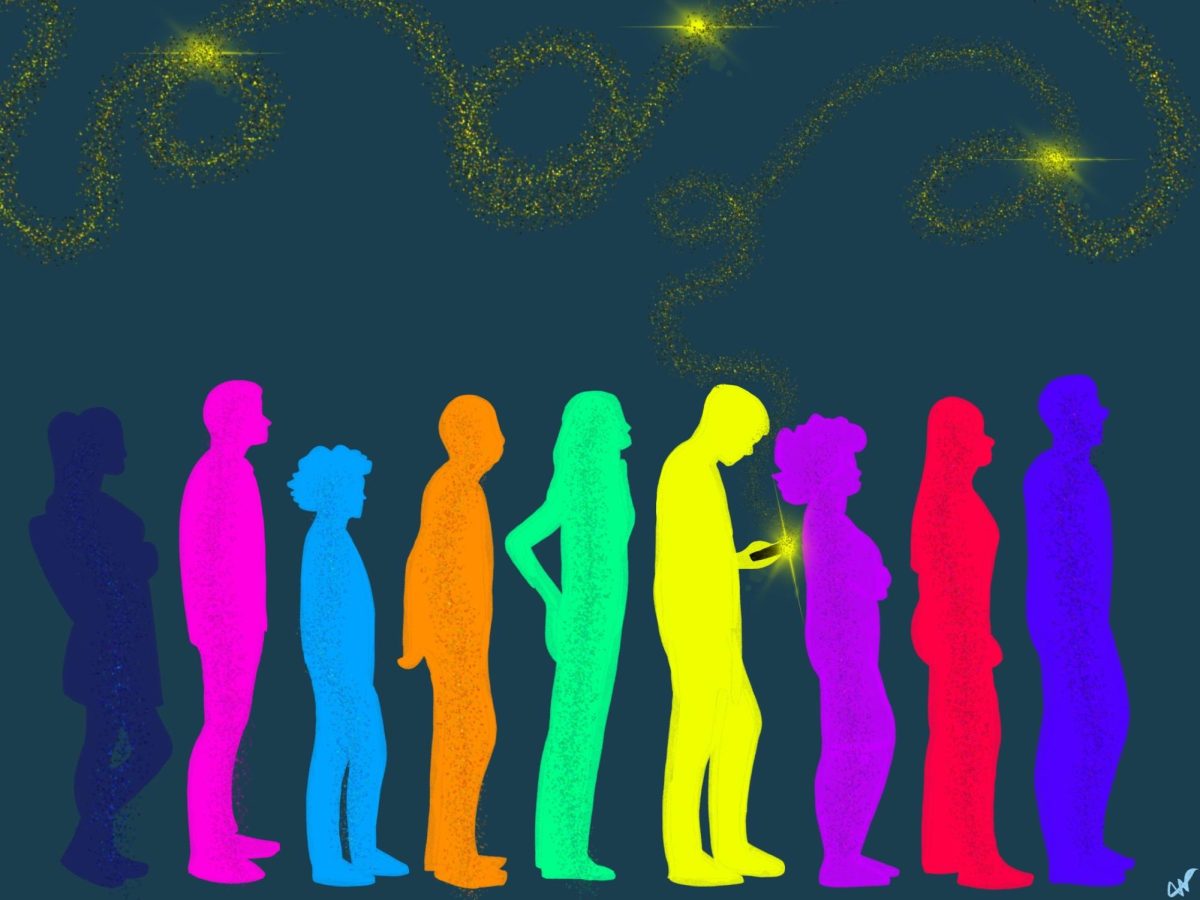The majority of social media users are unknowingly, and sometimes knowingly, guilty of doom scrolling. Everyone knows that doom scrolling is bad for your mental and physical health, yet we continue to scroll regardless of the consequences. Why? Do we believe that we are better than other phone addicts, and that we can stop anytime? Or is it because we truly can’t put the phone down?
The term “doom scrolling” refers to the constant consumption of social media and digital news, and it has devastating consequences if done at an unhealthy rate. In a world that values efficiency over quality, these short-form videos are meant to constantly overstimulate and bombard you with content in a small amount of time. According to the Nationwide Children’s Hospital, doom-scrolling negatively impacts your attention span so much that you can barely pay close attention for more than one minute. Suddenly, you start proving those “screenager” stereotypes right, and dull activities such as completing assignments can prove to be insanely difficult. When presented with homework, you are offered two choices: you can either scroll for a couple more minutes, or finish your pending homework. Well after a rough day at school, a couple minutes scrolling doesn’t seem so wrong. Five minutes turns into ten, which turns to thirty minutes, turning into an hour. In an environment like high school, where you receive assignments and assessments constantly, procrastination is something you can’t afford. Unfortunately, procrastination is not the only negative effect of doom scrolling that proves harmful towards your well-being.
Sleep problems can be associated with doom-scrolling: the more you scroll, the less you sleep. According to University Hospitals, doom-scrolling releases dopamine in your brain, keeping you stimulated. Your productivity, physical performance (increased fatigue), and social interaction all get impacted negatively by lack of sleep. You may suffer from eye-bags, a zombie-like personality, and occasionally, angry parents yelling at you for drinking all their coffee. Lack of sleep not only creates day-to-day issues, but increases risk of major diseases later in your life.
So far, it seems like doom-scrolling is your fault, which isn’t entirely true. Several apps like YouTube, TikTok, and Instagram follow an algorithm meant to keep you on the app by taking in user data and looking at what content you respond with. Commenting on videos, liking or disliking them, and watching numerous times informs the app what you like. They adjust the videos you see on the app to stimulate you. Keeping users on their apps benefits social media companies. To achieve this apps may send messages to remind you of what you could be missing out on. Notifications seem helpful as a small reminder, however according to The Taylor and Francis Journal constant notifications take your attention away from your current activity. This may impair cognitive ability and lead to addictive behaviors.
Today’s pop culture directly takes place on social media, so all the trends, memes, and news can be found on these apps. Like any teenager, you want to keep informed about current events, leading to increased presence on social media and constant scrolling. Overall, scrolling can be dangerous to your mental and physical health, yet it is important to remember only constant and unhealthy amounts of scrolling creates these problems. I know most people in high school with social media or devices have doom-scrolled before. It’s only natural given the amount of dopamine received from your brain to keep scrolling, and it feels like a break from the harsh reality of homework and exams. Unfortunately, I doom-scroll excessively, and with a screen-time of 9 hours per day my levels of procrastination skyrocketed. Studies were conducted by the American Psychological Association, and found that teens who spend the most time online, have the poorest mental health. Scrolling can be a fun break from work, but only in moderation. It takes self-control as well as motivation to get your screen-time lower. Setting time-limits on apps, disabling notifications from social media, and even just keeping your phone away from you can do wonders to your productivity levels. As long as you get over the initial phase of constantly thinking about your phone, your quality of life will increase significantly.






































